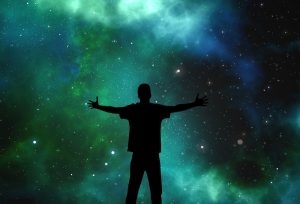S. Whatever we call ‘Knowing our true nature’ it is something that is doubt free and possible in any given moment. It is always present no matter what the circumstances are, positive or negative, with thoughts and without them. This knowing is of a radiant nature that encompasses all appearances. It is all appearances, nothing is separated from it. If this is your experience, then indeed, your path has borne fruit. If not, finding a real teacher is of paramount importance. Nothing can replace what we call Transmission. A real teacher introduces you to your own nature directly.
M. You speak the words of Advaita Vedanta, including “a real teacher is of paramount importance”. It is indeed very helpful, almost indispensable — but, essential? Please allow me to make a few points for your consideration:
1). The teacher of teachers, guru of gurus, Dattatreya (as per the Avadhut Gita), when asked from whom he obtained his wisdom he replied that he had had 24 gurus: water, earth, space, moon, sun, maker of arrows… Yes, of course, not anyone can be a Dattatreya, the supreme guru – he had what we can call ‘spontaneous – or congenital – Atmanubhava’ (final intuition). But intuition is universal. ‘The wind bloweth where it listeth’ (Spiritus ubi vult spirat).
2). In the Gaudapada karika 1-18 (Gaudapada being grand-guru of Shankaracharya) one reads that ‘all concepts like Prapañcha (world of duality) – guru, shishya (disciple), etc., – are mere misconceptions. In his bhashya to this karika Shankara states that ‘these ideas are for the purpose of teaching which are (appear as) true until one realises the Highest Truth’. Then, as I wrote before, ‘mind becomes no-mind’ since there are no longer any objects, no multiplicity at all remaining.
3). As to Transmission of spiritual power from teacher to disciple (shaktipat), this is prominent in forms of Tantra, and one reads that Abhinavagupta elaborated on it extensively, but it is not a tenet of AV, as implied by what was said under #2.
S. Regarding #3: Transmission. This is something that is quite commonly misunderstood as something given or received. There is no giving of anything, nor receiving of anything. When circumstances converge and there is a conjunction between teacher/friend and seeker, there can be an unusual meeting of minds. This is just a figure of speech, but there is something behind this which cannot be shown. It is not Shaktipat which is really transference of energy that many people have experienced in the presence of certain people. This is not what I’m referring to at all.
Having a living friend with whom you can talk and observe someone who has ‘realized’ the ‘Highest Truth’ can be the greatest gift one can get. You see the living embodiment of this. That’s all I can really say about it. I would think the Hindu term ‘Darshan’ would be appropriate. Since your choice of traditions is Advaita, I would seek out someone whom you think is a living embodiment of it.



